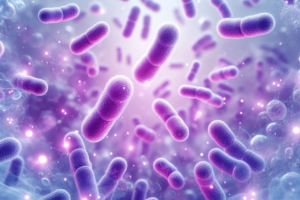The importance of nutrition in early brain development
The first 1000 days of life are the time spanning roughly between conception and one’s second birthday. It is a unique period of opportunity when the foundations of optimum health, growth, and neurodevelopment across the complete lifespan are established. In developing countries, poverty, poor conditions, and malnutrition weaken this foundation, leading to mortality and morbidities in neurodevelopmental potential. DHA, an Omega-3 fatty acid, is an essential nutrient that is required by the human body to maintain good health. The essential nutrient known for development and promoting cognitive, behavioral, and emotional health in babies is a star ingredient in all the prenatal vitamins and baby formulas. Considering the new parents are on a constant mission to get their baby’s nutrition right, the attention given to the role of DHA in infants makes sense. 1
How exactly does DHA help the baby? 2
The role of DHA in infants for brain development begins even before birth. As the mother enters the third trimester, a large amount of DHA starts to accumulate inside the baby’s brain, and this continues well after birth, for close to two whole years. Even though a baby’s brain continues to develop throughout childhood, the initial two years showcase very rapid growth. During this time, the brain gets bigger, and different neural pathways start to form a well-established network.
Benefits of DHA for Normal Brain Development3
Infant brain development is very rapid in a baby’s first three years of age. The baby’s brain will double in size by their first birthday, and they’ll go from simply adjusting to life outside the womb. It is recommended that a DHA-rich diet provides additional support for brain growth, which will be about 85% complete by the baby’s third birthday.
Three reasons why DHA is important4
- For optimal brain and visual development
- A healthy immune response to allergens
- Mental and motor skill development
i-DHA Drops
Product details:
- I-DHA is taste masked DHA drop that can be administered to infants with ease, unlike the other marketed products,
- i-DHA is vegetarian in origin and provides a very high concentration (40%) of pure DHA
Composition:
Each 0.5 mL contains
Veg DHA (Active)… 100mg
Dosage form:
Drop/Syrup
Recommended dose:
Once a day
Clinical study:5
- Objective: To assess the effect of docosahexaenoic acid and arachidonic acid supplementation in infant formula on the incidence of respiratory illnesses, pediatricians assigned infants
- Subjects: 1342 infants
- Dose: 32% docosahexaenoic acid and 0.64% arachidonic acid
- Results: Lower incidence of bronchiolitis/bronchitis during the first year of life in the supplemented group
Product features:
- Vegan, plant based Algal oil with 40% DHA
- Odorless alternative to fish oil
- Better absorption
- Allergy safe
References:
- Garg P, Pejaver RK, Sukhija M, Ahuja A. Role of DHA, ARA, & phospholipids in brain development: An Indian perspective. Clinical Epidemiology and Global Health. 2017 Dec 1;5(4):155-62.
- https://health.drmorepen.com/blogs/health-blog/understanding-the-role-of-dha-supplements-for-brain-health
- https://www.lifecell.in/blog/health-check/dha-a-key-nutrient-for-you-and-your-baby-after-birth
- https://blog.bioticsresearch.com/3-reasons-why-dha-is-important-for-kids
- Pastor N, Soler B, Mitmesser SH, Ferguson P, Lifschitz C. Infants Fed Docosahexaenoic Acid- and Arachidonic Acid-Supplemented Formula Have Decreased Incidence of Bronchiolitis/Bronchitis the First Year of Life. Clinical Pediatrics. 2006;45(9):850-855. doi:10.1177/1073858406289801







